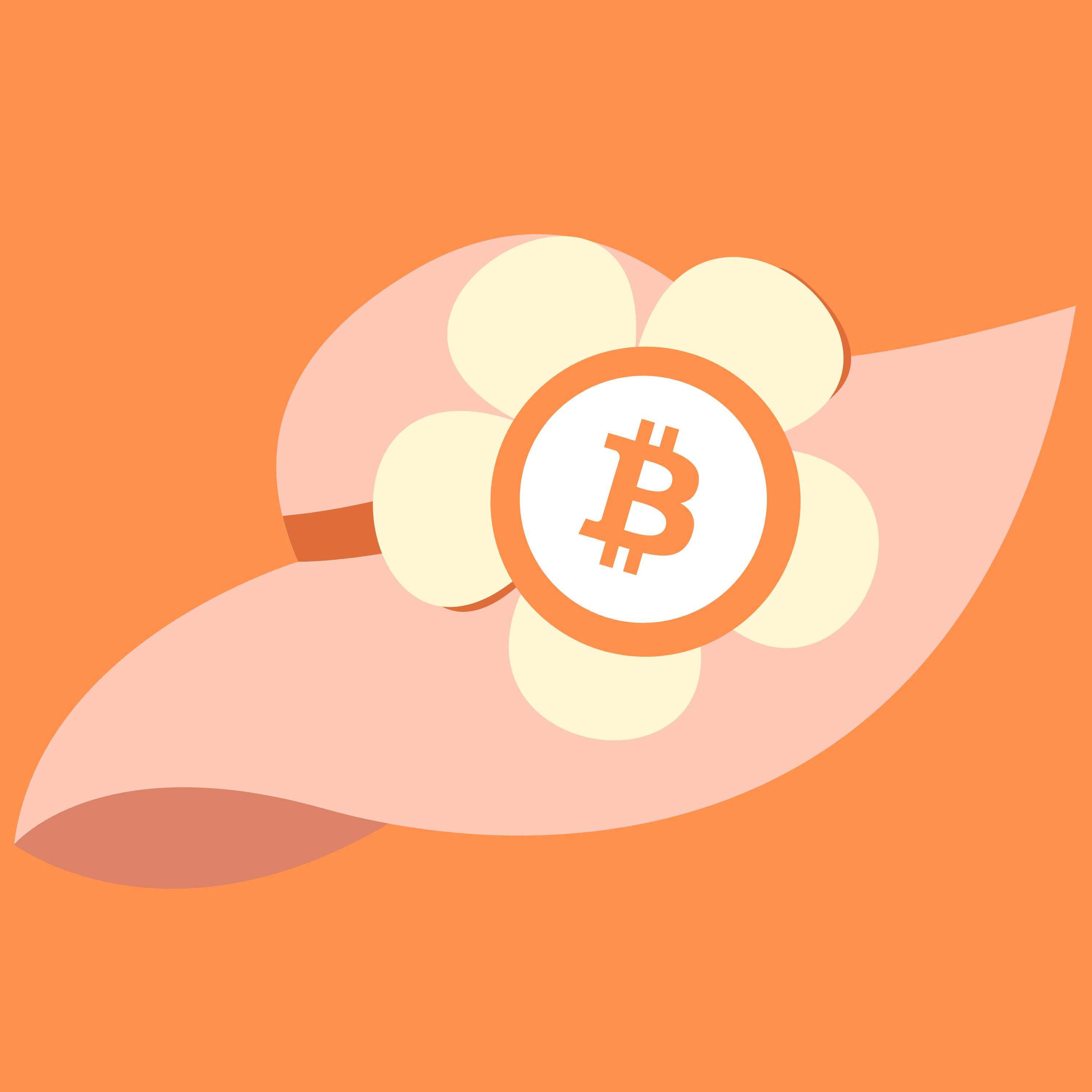Episode 43
From Paramedic to Bitcoin Evangelist - Part 1
In this episode:
- Discovering Bitcoin: Lindsay talks about how she was sucked into the altcoin world before recognizing the unique value of Bitcoin.
- Bitcoin's Distinct Qualities: She explains the differences between Bitcoin and altcoins, highlighting Bitcoin's lack of pre-mines and paid advertising as signs of its integrity.
- Lindsay's Background: A former paramedic, Lindsay explains her decision to shift her career path to contribute to the Bitcoin movement.
- Role of Spreading Bitcoin Adoption: She emphasizes the importance of spreading awareness and understanding of Bitcoin to foster adoption and overcome hurdles.
- Understanding Inflation: Lindsay illustrates her understanding of inflation and how she uses a grocery store analogy to explain its effects, particularly the wealth transfer from lower classes to those with control over the money.
Check out Lindsay's Airbnb Experience:
https://www.airbnb.com/experiences/3362025
https://www.meetup.com/bitcoin-bootcamp/
To learn more about Bitcoin: Join the Orange Hatter Women's Reading Club. Visit https://www.meetup.com/womensbitcoinreadingclubwithorangehatter
Please email questions/comments to Tali@orangehatter.com
Remember: Knowledge is empowerment! 🍊🎩
Mentioned in this episode:
Aleia Free Market Kids Sponsorship FULL
Get your HODL UP ("The best bitcoin game ever!") at www.freemarketkids.com.
Transcript
Hi everybody.
Tali:Welcome to Orange Hatter.
Tali:Today you'll be listening to a conversation I had with Lindsay.
Tali:Lindsay, welcome to Orange Hatter.
Tali:Thank you so much for coming to our show.
Tali:You've got a ton of stories to, to share with us, so we're
Tali:gonna jump right into it.
Tali:Let's start by addressing our first question, which is, when did you first
Tali:hear about Bitcoin, and what was your journey like from discovery to conviction?
Lindsay:Thank you so much for having me on.
Lindsay:My story starts in like 2019.
Lindsay:I had heard about Bitcoin before that in 2018 with the, with the bull run then, but
Lindsay:I really didn't think anything of it...
Lindsay:thought it was, you know, a bubble.
Lindsay:And then in 2019, and I was really interested in reading about China
Lindsay:and Henry Kissinger and stuff like that at the time, and somehow
Lindsay:I happened upon bitcoin again.
Lindsay:And I don't know, I kind of, I got sucked into the, the Altcoin world
Lindsay:for a couple months and, but like things started to kind of click with
Lindsay:me that there was something different about Bitcoin than the others.
Lindsay:So many of them have, you know, what are called pre mines, um, where the, the
Lindsay:owner, the, the inventor kind of releases a whole bunch of their coins to their
Lindsay:friends and keeps 'em for themselves.
Lindsay:And then, and then they do a sale to the public, and then they can kind of dump
Lindsay:their, their holdings on the public.
Lindsay:That's really, really common with altcoins, and I realized that
Lindsay:Bitcoin didn't have that capability.
Lindsay:And the other thing about it is that a lot of those altcoins had paid
Lindsay:advertising and, like, groups that were kind of, you know, advocating them
Lindsay:and Bitcoin didn't have any of that.
Lindsay:All of the, all of the marketing seemed to be, you know, people who
Lindsay:didn't have anything to gain from it.
Lindsay:And I thought that kind of was a, you know, a vouching for its merit, I guess.
Lindsay:And from there, I mean, there's no, there's no real
Lindsay:end to bitcoin rabbit hole.
Lindsay:So I kind of, I learned about economics and, you know, the
Lindsay:history of money and what makes, what makes something of good money.
Lindsay:And, you know, why, why did we ever get off the gold standard in the first
Lindsay:place if that was such a good standard?
Lindsay:And yeah, I, uh, I got really, really into it and I kind of talked to my, some
Lindsay:friends and family into learning about it, and ever since I've just been more
Lindsay:and more interested and more and more impressed by the community that I've, that
Lindsay:I've experienced growing up around it.
Tali:Thank you for sharing that.
Tali:If you can just paint a picture for our audience of, like, your background and
Tali:where you're located and what it's like in terms of, just knowledge about Bitcoin,
Tali:where like closest to you, where you live.
Lindsay:Sure.
Lindsay:So I am 29.
Lindsay:I live in , Michigan, which is a pretty, a fairly rural area.
Lindsay:There's, other than the, other than the people that I have personally talked
Lindsay:to and kind of gotten, started down the, down the path, there's really
Lindsay:nobody that, that I know that's, that's interested in it, um, or knows, you
Lindsay:know, anything, anything about it.
Lindsay:I work several part-time jobs.
Lindsay:I was a paramedic for a while, and I decided to go and try and...
Lindsay:you know, I was trying to, to do something more tangibly helpful, you know, to
Lindsay:society with my life and not a...
Lindsay:there's not a whole much, whole lot out there that's more tangibly
Lindsay:helpful than, you know, being a paramedic on an ambulance.
Lindsay:But I decided that wasn't for me.
Lindsay:I actually stopped being a paramedic in 2020, and decided to, to try and,
Lindsay:you know, go back to school and, and contribute to this movement more.
Lindsay:I'm actually going to school for information systems management.
Lindsay:I wanna learn a little bit about development so I can do more in
Lindsay:the Bitcoin space, 'cause I think that this is, I think this is
Lindsay:arguably the most important movement going on in the world today.
Lindsay:And that's saying a lot coming from someone who, you know, does,
Lindsay:did CPR for a living and whatnot.
Lindsay:I don't know, I just, I can't...
Lindsay:it's so strange to me that so few people understand, you know, the, the gravity
Lindsay:of this movement and what, and what Bitcoin is actually doing in the world.
Tali:I think that sentiment is shared by a lot of Bitcoiners.
Tali:I'm curious, so you were a paramedic...
Tali:and I think a lot of women have the same concern when it comes to Bitcoin,
Tali:which is if they're not computer sciences, it's not something that they
Tali:can possibly understand, and yet you are so far down the rabbit hole, you've
Tali:changed your entire life direction.
Tali:So can you talk a little bit about that, that sort of internal shift
Tali:and address some of the concern that a lot of women have, which is:
Tali:how can I possibly understand this?
Tali:It's so complicated.
Lindsay:Yeah, so I don't know.
Lindsay:I'm, I actually had an experience, I went to Bitcoin Miami in 2023, and I
Lindsay:was sitting with a, with a group of people, and I remember one of them
Lindsay:kind of rubbed me the wrong way...
Lindsay:uh, said something about how, you know, if you don't, if you don't, if you basically,
Lindsay:if you can't be a developer, like, you know, you're not doing anything important.
Lindsay:And I'm just like, that is so, so completely backward.
Lindsay:And it's like, you can't, you can't put it in those terms.
Lindsay:Yes.
Lindsay:I mean, I'm not gonna deny that the development part of Bitcoin is hugely
Lindsay:important, um, and, you know, building out the tools to make it easier is,
Lindsay:is, you know, they have vital role.
Lindsay:But Bitcoin doesn't do any good if nobody knows about it and nobody
Lindsay:understands it and nobody can use it.
Lindsay:And Bitcoin's biggest hurdle is adoption.
Lindsay:Um, and that's why I think that podcasts like this and you know, people like, you
Lindsay:know, Natalie Brunell and Preston Pysh and all those that are kind of evangelizing
Lindsay:and kind of spreading the word and, and helping people to understand...
Lindsay:that is, that I think is the most important role in this space right now.
Lindsay:And I am trying to do, I'm trying to do both.
Lindsay:I'm trying to, you know, kind of change my, my career path.
Lindsay:And fortunately I have the, you know, the, the time and the ability to be able
Lindsay:to put myself back through school to do that and learn some about development.
Lindsay:But, you know, if a better, if a better, and, you know, different opportunity
Lindsay:comes along where I'm doing something more like this, absolutely, I'll take it.
Lindsay:I don't think that there's...
Lindsay:any contribution to Bitcoin is a good one and a worthwhile one.
Tali:When you first heard about Bitcoin and you started taking that
Tali:very first step, so if you can think back a couple years, how did you...
Tali:how did you start learning like the first baby step?
Tali:How did you take that step and what material did you use to
Tali:help you understand it enough to take the second step?
Lindsay:To be honest, I don't, I don't really remember all
Lindsay:that well what I did first.
Lindsay:I know that the concept of, of inflation was probably the first hurdle
Lindsay:that I, you know, kind of tackled and that, that made sense to me.
Lindsay:'Cause I've always, you know, as someone who's worked a lot of, a lot of lower wage
Lindsay:jobs in her life, you know, inflation's a, a real thing, and it's like, you kind
Lindsay:of feel like you're on a, you're on a treadmill all the time, and it's just, you
Lindsay:know, you gotta go, you gotta go faster and work harder and put in more hours
Lindsay:just to kind of stay in the same place.
Lindsay:And, you know, I've always been, I've always felt that, but I never really
Lindsay:devoted any, any mental space to, to really understanding why that was and
Lindsay:learning about inflation and why it exists, and, and the times in the past
Lindsay:when it hasn't really existed, really kind of helped build a framework for me.
Lindsay:And that really kind of put it in context and, and put Bitcoin, made Bitcoin into
Lindsay:something I could, I could relate to, and something that had a, you know,
Lindsay:a real use case for someone like me.
Tali:So I imagine other people, your age group, you know, your,
Tali:your friends and family are feeling the same inflationary pressure.
Tali:Were you able to discuss this topic with them in the way that you just described?
Lindsay:No, I, uh, After I had gone down the rabbit hole enough where I
Lindsay:felt confident enough to kind of, you know, to breach the topic with other
Lindsay:people and, you know, not sound like a, you know, tin hat, conspiracy theorist.
Lindsay:Um, I was a little more thoughtful in, in how I approached things.
Lindsay:And like with inflation in particular, there's, there's
Lindsay:an analogy that I like to use.
Lindsay:So if you think of a grocery store owner, just a local grocery store owner,
Lindsay:who also happens to own some rental properties, This grocery store owner, you
Lindsay:know, he has employees, and we'll look at one of those employees in contrast.
Lindsay:So you have an employee who works at the grocery store and who happens
Lindsay:to live in one of these apartments.
Lindsay:If you introduce inflation into that picture, what it does is it's going to
Lindsay:raise the prices in the grocery store.
Lindsay:It's going to raise the value of, say you own your own home, or you own
Lindsay:a rental, or you own a business...
Lindsay:the value of all of that goes up.
Lindsay:The value of those wages of that worker did not, and the value of
Lindsay:the cash that you save, which is a large percentage of your net worth if
Lindsay:you're a wage worker, also goes down.
Lindsay:But if you happen to be better off and you own stocks, those go up as well.
Lindsay:So when you introduce inflation, you have this lowering of the net worth of
Lindsay:people who are already lower class, and you have this elevation of the net worth
Lindsay:of people who are already more well off.
Lindsay:But the transfer of that purchasing power first goes to whoever has
Lindsay:control of the new money, that is the person doing the printing.
Lindsay:So you have a transfer of the purchasing power of the people in the lower
Lindsay:class to first the government and then, the government who does the
Lindsay:printing, and then to the person who owns that grocery store, who owns
Lindsay:those assets, who owns those homes, rentals, whatever assets that they have.
Lindsay:You have, you have a net wealth transfer.
Lindsay:And I don't know, kind of putting it into those terms and then kind of relating
Lindsay:it to the person that I'm talking about seems to, seems to help a lot.
Lindsay:'Cause I mean, in my case, like, I never really thought about the fact that my,
Lindsay:that the money in my bank account didn't buy as much as it, you know, doesn't buy
Lindsay:as much as it did two years ago, even if there's the same dollar amount in there.
Lindsay:'Cause two years ago, things were cheaper, things are more expensive now.
Lindsay:But where did that purchasing power go?
Lindsay:It went to the person who put that new money in circulation.
Lindsay:And that person in this case is, is the government, the Federal Reserve, or you
Lindsay:know, the big banks that kind of introduce money into the system by lending...
Lindsay:however, however you wanna look at it, it's people with a lot more money than me.
Lindsay:And that's kind of, I don't know...
Lindsay:it's an insidious thing because it's not something that
Lindsay:very many people understand.
Lindsay:Inflation is the most progressive tax.
Tali:So when you explain it like that to the people that you talk
Tali:to, what is their first reaction?
Lindsay:A lot of, I get a lot of quiet for a little bit while.
Lindsay:They kind of, kind of think about it, but I don't know.
Lindsay:It's, it seems to, it seems to connect, it seems to, it seems to make sense.
Lindsay:And then usually from there, like, you know, it's, well, what's, you know,
Lindsay:that that connection makes you, makes you think of like, oh, I need to be, I
Lindsay:need to be invested in real estate, in stocks like that grocery store owner.
Lindsay:Which...
Lindsay:I mean, that's, that's not untrue.
Lindsay:Like that, those are good strategies and would've served you
Lindsay:well over the last, you know, a hundred years or really whenever.
Lindsay:But from there, it's, you know, we kind of breach into into why,
Lindsay:why Bitcoin is a superior asset.
Tali:Thanks for joining us today and learning with us today.
Tali:If the discussion with our guest resonated with you and you would
Tali:like to dive deeper into the world of Bitcoin, don't miss out on joining the
Tali:Orange Hatter Women's Reading Club.
Tali:The meetup link is in the show notes.
Tali:Also, if there are women in your life whom you think will both enjoy and
Tali:benefit from learning more about Bitcoin, please share Orange Hatter with them.


